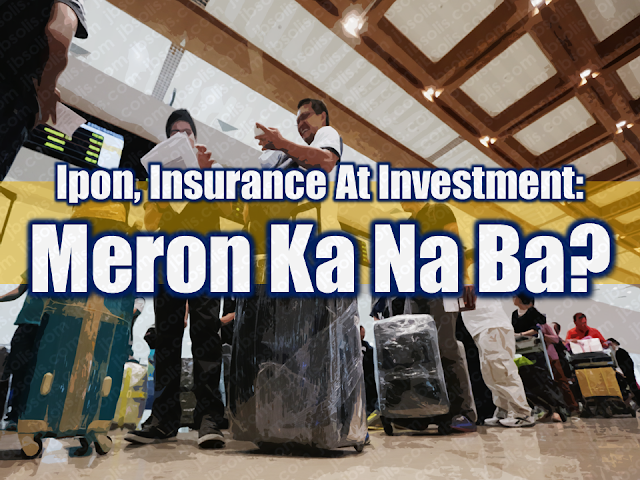According to the estimate of the Commission on Filipinos Overseas, there are around 10.2 million overseas Filipino workers (OFWs) deployed around the world. This number comprises roughly 10 percent of total population. Approximately 10 percent of GDP comes from the remittances that OFWs send according to the World Bank. Having a clear financial goal is very important for every OFW. Achievement of this goal could be a determining factor for their success. Thus, every OFW must have a feasible plan. In this regard, the plan can have three key steps— savings, insurance, and investment.
After all, working abroad will not be forever. Eventually, every OFW will go back home and when that time comes, they should be ready.
After all, working abroad will not be forever. Eventually, every OFW will go back home and when that time comes, they should be ready.
Advertisement
Sponsored Links
Savings
Saving could be difficult to OFWs but it needs to be done. There are OFWs who worked abroad for years but coming home broke.
Maybe they do the common mistakes OFWs make leaving them without a penny saved.
By developing a budget, the OFW will be able to identify priorities, review needs versus wants and, ultimately, be able to live within means. Both the OFW and the OFW family must be committed and resilient in the implementation of the budget.
Part of saving is the establishment of an emergency fund. This fund will be handy in case of job loss, job status change, adverse health conditions or key asset damage. In the case of the OFW, this fund can be equivalent to six to 12 months of the total monthly family lifestyle expenses. Maintaining a separate liquid account as an emergency fund is recommended for better management.
Insurance
The second step is to have an insurance. It is all about protecting wealth. In this life full of risks and uncertain turn of events, the continuation of government programs like Social Security System (SSS), Pag-IBIG, and PhilHealth has to be done, especially since these are very accessible in government offices and remittance centers abroad. Life insurance can help address concerns related to income replacement, illness, education, retirement, burial, debt payment and estate planning. Meanwhile, nonlife insurance can help protect valuable assets for better peace of mind.
Investment
There are a number of investment options available for OFWs.
You can start a small business while you are still working abroad.
Many OFWs have found their luck in retail stores like flower shops, food cart business or even simply selling coin banks.
You can also consider investing in mutual funds, unit investment trust funds, and variable unit-linked funds. Or if you have the knowledge and the time, you can also directly invest in the stock market. You can invest in real estate to generate price appreciation and rental income. Even the government urges OFWs to invest in government projects.
It is easy to plan an investment, getting an insurance or even to start saving but it all depends on your will to faithfully commit in doing all of these. Retirement is certain and working abroad could definitely end sooner. All you got to have is the determination and will to start doing it now Or you might suffer the same fate as most of the OFWs did.
